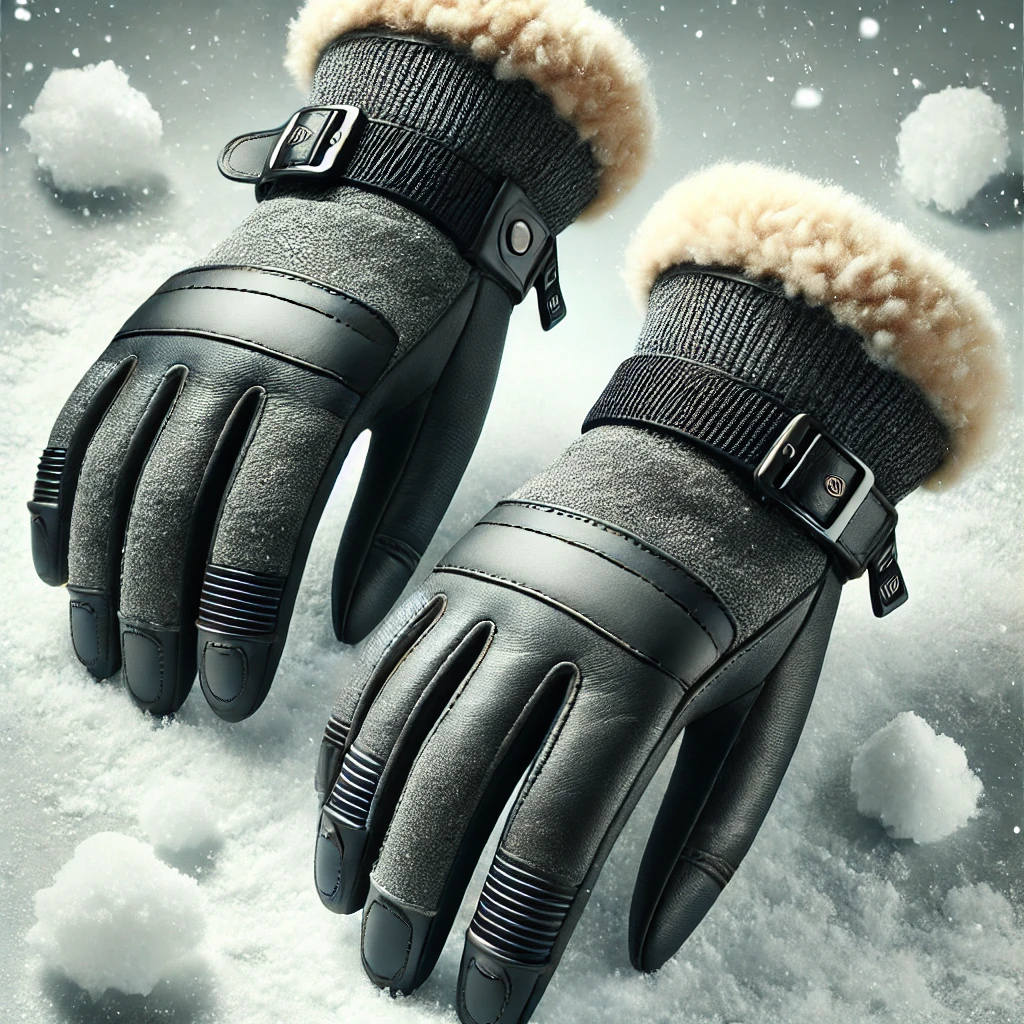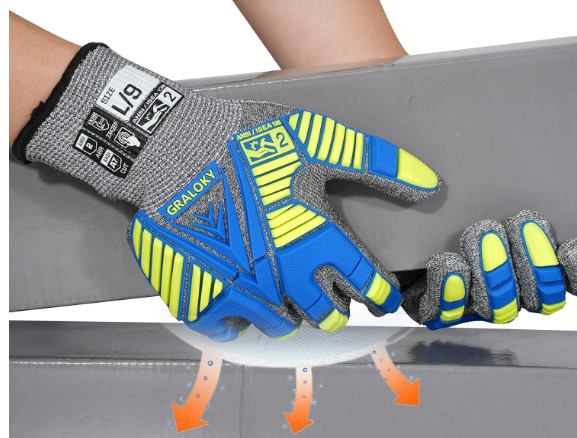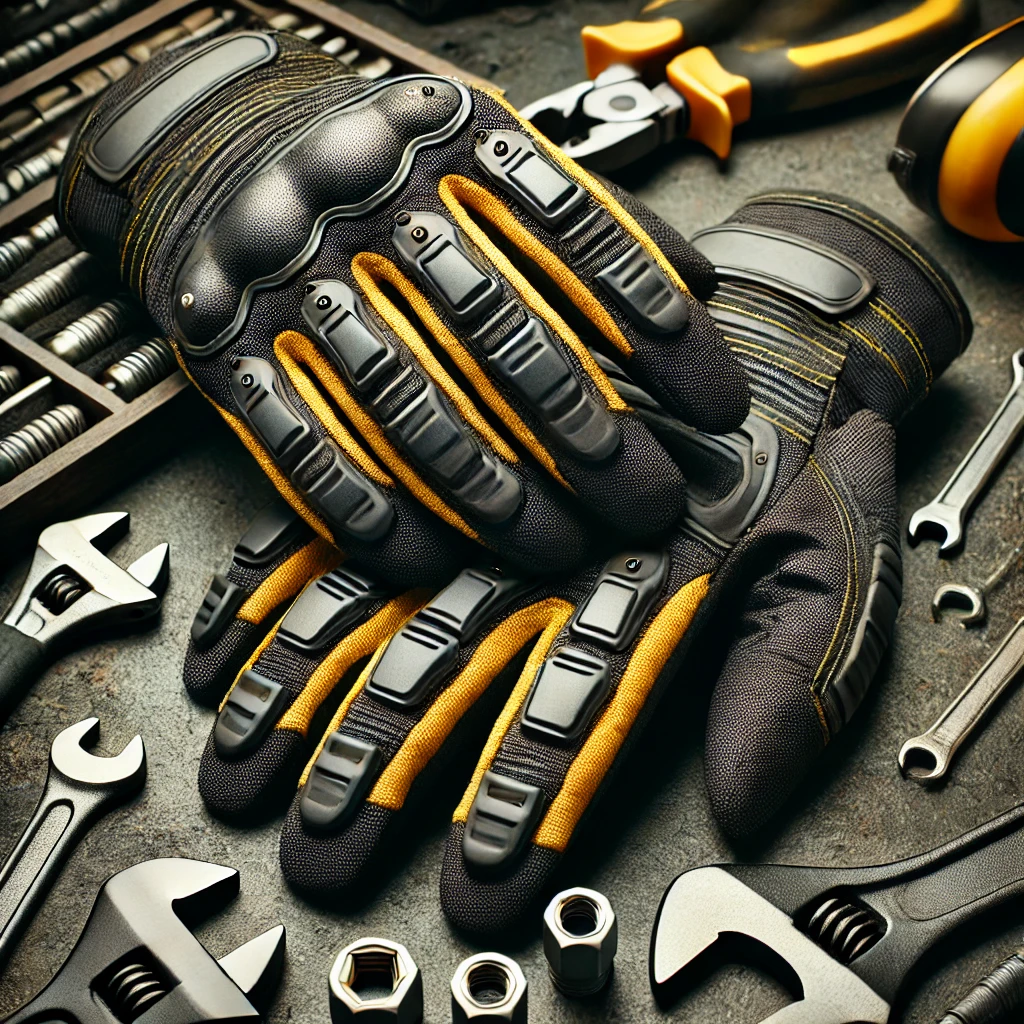Introduction
Mechanical gloves are essential protective gear designed to safeguard hands during demanding tasks. These gloves are engineered to provide protection, durability, and enhanced performance in various work environments.
Table of Contents
Whether you are working in construction, operating heavy machinery, or tackling automotive repairs, mechanical gloves ensure your hands stay safe from cuts, abrasions, and other potential hazards.
Mechanical gloves differ from ordinary gloves in their robust construction and specialized features tailored to specific applications. From cut-resistant materials to impact-absorbing designs, they cater to a wide range of industrial, professional, and DIY tasks. In this comprehensive guide, we’ll explore the types, features, applications, and benefits of mechanical gloves to help you choose the right pair for your needs.
Types of Mechanical Gloves
Mechanical gloves come in various designs, each created to meet the requirements of specific tasks and industries.
General Work Gloves
General work gloves are versatile and suitable for a broad range of tasks.
- Features: These gloves typically feature durable materials like leather or synthetic blends, offering moderate protection and dexterity.
- Applications: Ideal for basic construction work, gardening, or handling tools.
- Advantages: Affordable and widely available, these gloves balance protection and flexibility.
General work gloves are perfect for users who require basic hand protection without sacrificing comfort.
Impact-Resistant Gloves
Impact-resistant gloves are designed to protect hands from heavy blows and vibrations.
- Features: Reinforced knuckles, padded palms, and shock-absorbing materials provide enhanced safety.
- Applications: Commonly used in construction, heavy machinery operation, and automotive repair.
- Advantages: Reduces the risk of hand injuries caused by repetitive impact or vibrations.
These gloves are a must-have for workers in high-risk environments.
Heat-Resistant Gloves
Heat-resistant gloves protect hands from extreme temperatures.
- Features: Made from materials like Kevlar or aluminized fabrics to withstand heat and flames.
- Applications: Ideal for welding, metalwork, and working near high-heat sources.
- Advantages: Prevents burns and ensures safe handling of hot objects.
Heat-resistant gloves are essential for professionals working in high-temperature environments.
Cut-Resistant Gloves
Cut-resistant gloves are designed to shield hands from sharp objects and edges.
- Features: Constructed from materials like stainless steel mesh, Kevlar, or high-performance polyethylene (HOPE).
- Applications: Used in manufacturing, glass handling, and food processing.
- Advantages: Provides excellent protection without compromising dexterity.
These gloves are crucial for tasks involving sharp tools or materials.

Features to Look for in Mechanical Gloves
Selecting the right mechanical gloves involves evaluating key features that ensure safety and comfort.
Material Quality
The quality of materials used in gloves determines their effectiveness and longevity.
- Natural Materials: Leather offers durability and flexibility, while cotton provides breathability.
- Synthetic Materials: Materials like nitrile, neoprene, or Kevlar offer specialized protection against chemicals, heat, or cuts.
High-quality materials enhance the gloves’ protective properties and user experience.
Grip and Dexterity
A good grip is essential for handling tools and materials with precision.
- Textured Palms: Enhance grip even in slippery conditions.
- Flexible Designs: Allow for better hand movement and control.
Gloves that balance grip and dexterity are ideal for intricate tasks.
Comfort and Fit
Comfort ensures prolonged usage without fatigue.
- Ergonomic Designs: Prevent strain and improve performance.
- Adjustable Straps: Provide a secure and snug fit.
Comfortable gloves allow users to focus on their tasks without distractions.
Durability
Durable gloves withstand wear and tear, offering long-term protection.
- Reinforced Seams: Enhance the gloves’ ability to endure heavy use.
- Abrasion Resistance: Prolongs the lifespan of the gloves.
Investing in durable gloves saves costs in the long run.

Applications of Mechanical Gloves
Mechanical gloves are used across industries to protect workers and improve task efficiency.
Construction and Heavy Machinery
Mechanical gloves safeguard workers from injuries caused by sharp tools, heavy equipment, and debris.
- Key Features: Impact resistance, cut protection, and rugged materials.
- Common Tasks: Bricklaying, scaffolding, and operating power tools.
Automotive and Repair Work
These gloves protect hands during automotive repairs and mechanical maintenance.
- Key Features: Oil resistance, grip enhancement, and dexterity.
- Common Tasks: Changing tires, handling car parts, or fixing engines.
Manufacturing and Industrial Use
In industrial settings, gloves protect workers from heat, sharp objects, and hazardous chemicals.
- Key Features: Chemical resistance, heat protection, and cut resistance.
- Common Tasks: Assembling products, handling raw materials, and welding.
DIY Projects and Home Maintenance
Mechanical gloves ensure safety during home repairs and personal projects.
- Key Features: Flexibility, abrasion resistance, and grip.
- Common Tasks: Carpentry, plumbing, and gardening.

Benefits of Using Mechanical Gloves
Hand Protection and Safety
Mechanical gloves minimize the risk of injuries such as cuts, burns, or bruises.
Improved Efficiency and Precision
By providing a secure grip and protecting against hazards, these gloves enhance productivity.
Versatility Across Industries
From construction to home projects, mechanical gloves cater to a wide range of activities.
Q&A Section
Q1: Can mechanical gloves be reused?
A: Yes, most mechanical gloves can be reused, provided they are cleaned and maintained properly.
Q2: Are mechanical gloves waterproof?
A: Some mechanical gloves offer waterproofing, but not all. Check the product specifications for water resistance.
Q3: How do I know which size fits best?
A: Measure your hand’s circumference and refer to the manufacturer’s size chart for accurate fitting.
Conclusion
Mechanical gloves are indispensable tools for ensuring safety and efficiency across various tasks. By understanding their types, features, and applications, you can select the right pair to meet your specific needs. Investing in high-quality gloves not only protects your hands but also enhances your performance in demanding environments.
